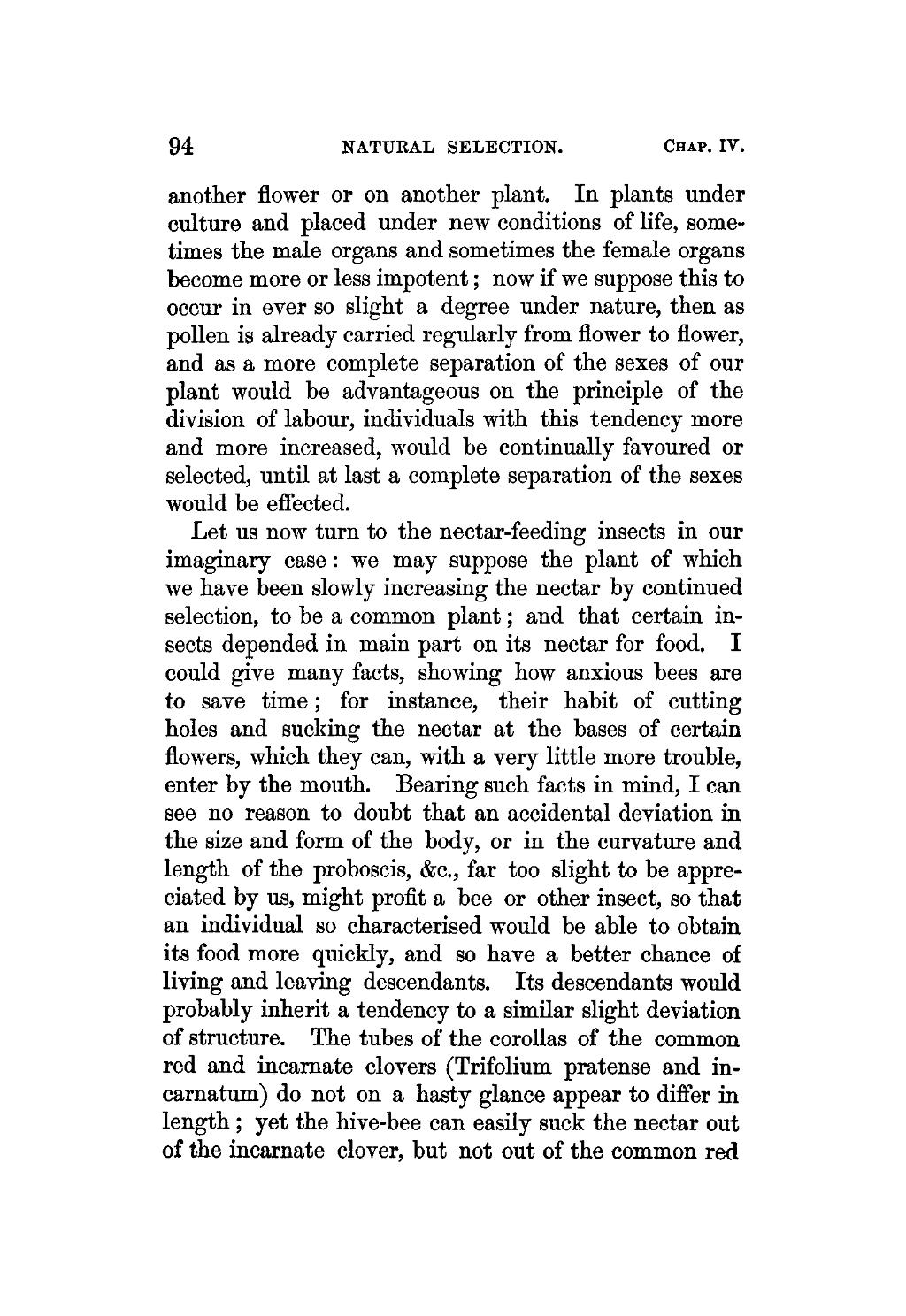another flower or on another plant. In plants under culture and placed under new conditions of life, sometimes the male organs and sometimes the female organs become more or less impotent; now if we suppose this to occur in ever so slight a degree under nature, then as pollen is already carried regularly from flower to flower, and as a more complete separation of the sexes of our plant would be advantageous on the principle of the division of labour, individuals with this tendency more and more increased, would be continually favoured or selected, until at last a complete separation of the sexes would be effected.
Let us now turn to the nectar-feeding insects in our imaginary case: we may suppose the plant of which we have been slowly increasing the nectar by continued selection, to be a common plant; and that certain insects depended in main part on its nectar for food. I could give many facts, showing how anxious bees are to save time; for instance, their habit of cutting holes and sucking the nectar at the bases of certain flowers, which they can, with a very little more trouble, enter by the mouth. Bearing such facts in mind, I can see no reason to doubt that an accidental deviation in the size and form of the body, or in the curvature and length of the proboscis, &c., far too slight to be appreciated by us, might profit a bee or other insect, so that an individual so characterised would be able to obtain its food more quickly, and so have a better chance of living and leaving descendants. Its descendants would probably inherit a tendency to a similar slight deviation of structure. The tubes of the corollas of the common red and incarnate clovers (Trifolium pratense and incarnatum) do not on a hasty glance appear to differ in length; yet the hive-bee can easily suck the nectar out of the incarnate clover, but not out of the common red

